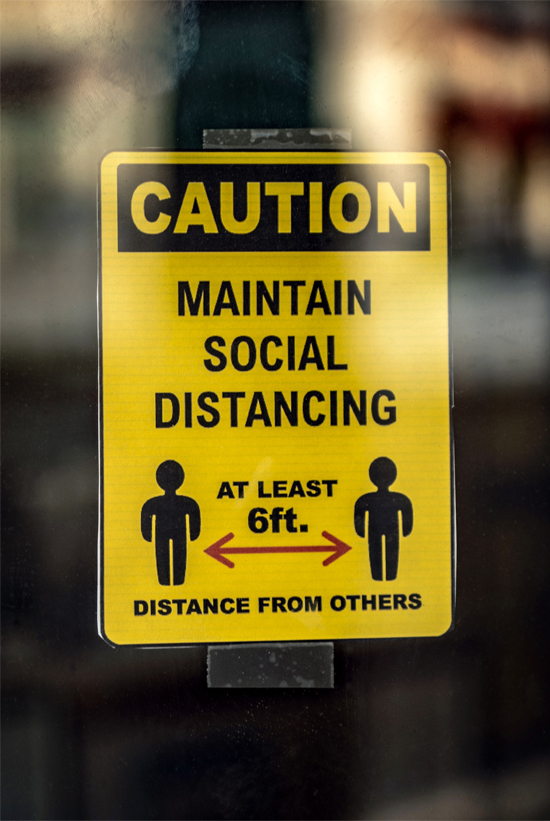Many US businesses hoped to reopen their workplaces after Labor Day (7th September), but a new survey of senior managers/executives suggests an uncertain road ahead. In fact, 35% of leaders have admitted that they don’t know when their companies will reopen their workplaces, according to a survey carried out by The Conference Board.
The survey also found that only about 60% of companies have consulted their workers about their levels of readiness and comfort in returning to the workplace. In addition, despite talk of a looming vaccine and its benefits, just 5% say its “wide availability would be a significant factor in the timing of a return to the workplace”. The findings also reveal that, while most companies have mandated certain protocols for employees arriving at work, only 67% are requiring screening, testing, or temperature checks.
The Conference Board polled more than 1,100 business leaders (primarily C-suite executives, vice presidents, and senior managers from a cross-section of industries) across 20 US metropolitan areas last month.

Image credit: Anton, Unsplash
REOPENING UNCERTAINTY
Although 35% of companies are still unsure about their reopening date, around 39% of companies plan to reopen by the first quarter of 2021. However, 13% of companies have remained open throughout the pandemic, according to the report. The highest levels of uncertainty by location include Miami (46%), Seattle (43%), San Diego (42%), Washington DC (41%) and San Francisco (41%).
It appears that a vaccine is not a deciding factor for companies. Just 5% thought the widespread availability of a vaccine would be a significant factor in the timing of a return to the workplace. This low ranking likely reflects concern about the viability of a vaccine with a significantly shorter clinical trial time, noted the study. It also reflects concern about “the legal implications for any corporate mandate to get the vaccine as a condition for returning”.
SAFEGUARDING STAFF
So what actions are businesses taking to safeguard their workers if they return to work? Around 82% are purchasing safety equipment (such as masks, thermometers, contactless entry devices, sanitisation devices). Another 80% are creating new workplace policies requiring social distancing (for example, limiting size of in-person meetings or usage of common areas). In addition, 78% are preparing their workspaces for the return of workers through deep cleaning or disinfecting activities.

Image credit: Tim Mossholder, Unsplash
Fewer organisations, however, are providing childcare options such as on-site childcare, flexible scheduling to meet childcare needs for returning workers – around 19%. And only 13% are implementing safety measures and/or policies specifically for workers taking public transportation (such as more frequent screening or providing extra safety supplies for workers who use public or shared transportation).
STAFF READINESS
What about employees? How comfortable are they about returning to work? Surprisingly, only about 60% of companies have even surveyed staff about their levels of readiness and comfort in returning to work. On a positive note, those businesses that did survey workers were more likely to put all safeguard measures in place, including top employee concerns, confirmed the study.
“Companies that sought worker sentiment about their comfort levels were more likely to implement safety measures specifically for workers taking public transportation, revise work-from-home policies, and provide childcare options,” according to Rebecca Ray, Executive Vice President of Human Capital at The Conference Board. “Notably, these top worker concerns were low on the overall list of safeguards that organisations are implementing, indicating that they are more important to employees than employers may realise. This disconnect reinforces the need for companies to receive buy-in from their most precious resource – their people – especially about matters as consequential as this one.”

Image credit: Anna Shvets, Pexels
ADDITIONAL KEY FINDINGS
The study also revealed that less than half of companies have enacted or plan to enact staggered shifts or staggered timing. Despite fairly consistent health organisation guidance regarding social distancing, only 46% planned for staggered shifts within the workday or work week to reduce worker contact. And just another 46% plan to create staggered timing for business units or workers to reenter the workplace.
Also check out the latest study results from KPMG indicating the need for US companies to better support returning employee mental health amid the pandemic.







































